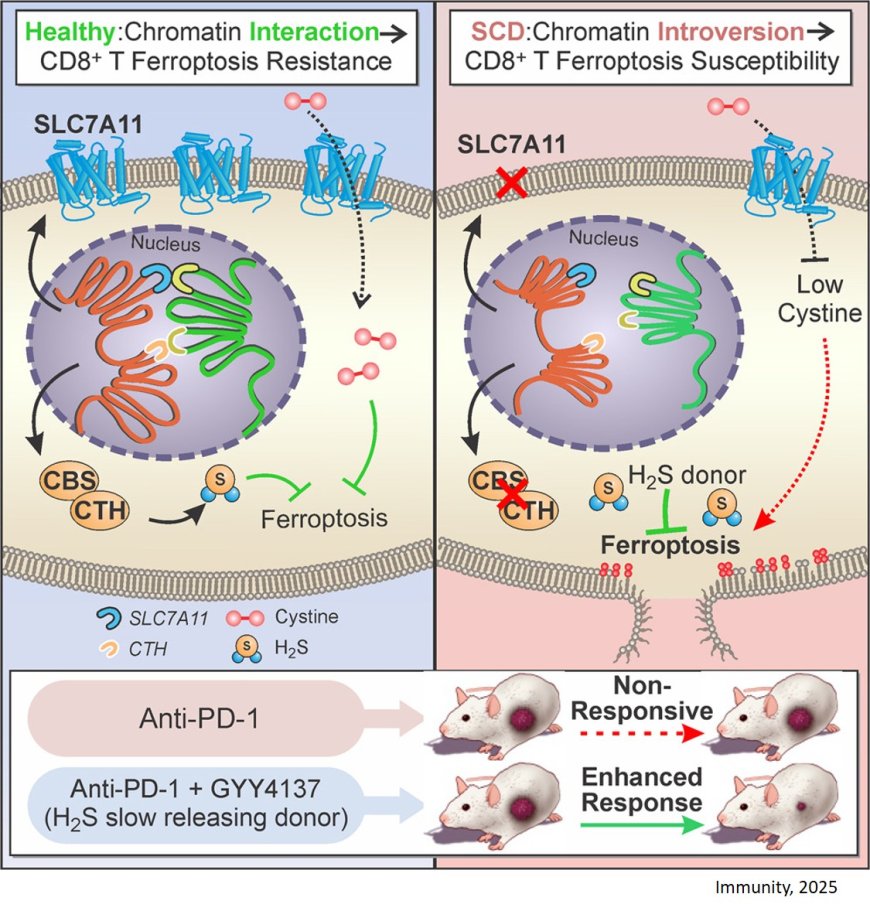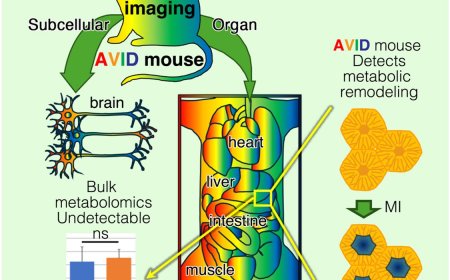How sickle cell disease suppresses antitumor immunity

Sickle cell disease (SCD) have a higher risk of developing certain cancers than the general population, but the mechanisms driving this increased risk remain unclear.
SCD inhibits CD8+ T cell function in the tumor microenvironment, potentially affecting cancer immunotherapy.
The researchers reveal that SCD alters the 3D genome architecture of CD8+ T cells, triggering ferroptosis and impairing antitumor response resulting in reduced expression of anti-ferroptotic genes, including SLC7A11 and hydrogen sulfide (H2S) biogenesis genes, thereby increasing susceptibility to ferroptosis.
They also demonstrate that hydrogen sulfide treatment rescued SLC7A11 expression, mitigated ferroptosis and enhanced immune and anti-tumor responses, thereby offering new avenues for precision immunotherapy in patients with inherited disorders.
https://www.cell.com/immunity/fulltext/S1074-7613(25)00183-9











